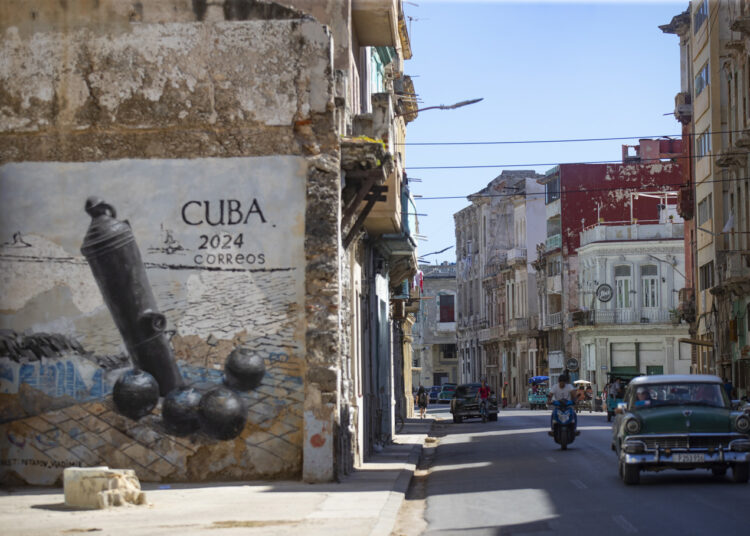
The funeral for police Officer Enrique Martínez gave a grieving family a proper goodbye to a native son who was a credit to his city. But the service did more than that: It served as a call to Chicagoans to reset their collective relationship with the men and women on whom they rely for their safety and well-being. As we have experienced too many times in the past several years, we were reminded again of the extraordinary risks police officers take on our behalf.
In these recent years, they’ve done so even as too many of us failed to appreciate their sacrifices, or in the worst instances vilified them and their profession. The hundreds of Martínez’s fellow officers in attendance at St. Rita of Cascia Shrine Chapel on Chicago’s Southwest Side were deservedly celebrated for the jobs they do and got a pep talk of sorts from their boss, exhorting them in the name of Officer Martínez’s memory to remember why they decided to be cops in the first place.
Most importantly, we got a glimpse of Enrique Martínez, the man: the 26-year-old son of Chicago, native of West Lawn on the Southwest Side, beloved fiance, son and brother. Martínez was portrayed by those who knew him best — his fellow officers in the South Side’s 6th District, one of Chicago’s most dangerous, and his brother, Adrian Martínez Jr., also a police officer — as a young man who lived for the present.
A jokester with a big laugh that was a defining trait. An animal lover, considered within his district to be a “ dog whisperer.” A lover of food and cigars.
Enrique Martínez, shot to death in Chatham the night of Nov. 4 after a traffic stop, came through in this moving service as someone who truly knew himself. Adrian Martínez, five years Enrique’s elder, recalled being the one who named his younger brother soon after he was born, christening him after Spanish singer Enrique Iglesias, of whom Adrian was a big fan at the time.
Adrian Martínez recalled their mother wanting her boys to be doctors or lawyers and having to come to terms with who her sons were. “As hard as she tried, we realized it wasn’t just a job,” he said. “It was our calling.
...
Who we were supposed to be.” Even in his pain, Adrian Martínez didn’t for one moment betray any regret for the choice his younger brother made to follow in his footsteps. “Every day is a gift, and happiness is a choice.
” That was how Adrian Martínez described how his brother lived his life. As much as the service appropriately celebrated the life of Enrique Martínez, it served, too, as a plea — even something close to a demand — for all of us to respect the job police must do and the human beings who do that work. For the second time in less than seven months, Chicago police Superintendent Larry Snelling had the sad duty to eulogize an officer shot to death.
In the same church in late April, Snelling spoke after the murder of Officer Luis Huesca. But, while Snelling similarly stirred the congregation and viewers with calls to remember Martínez and his family, there was a difference between his remarks back then and what he said Monday. Snelling pointedly spoke to his fellow policemen and women, calling attention to the unspoken undercurrent running through the reaction to both of these traumatizing deaths: the pervasive feeling among Chicago law enforcement that what they do isn’t appreciated.
Snelling called on those he leads to remember why they chose this profession when they start to feel overwhelmed or like their sacrifices are for naught. And, most notably, he declared that things are changing. More Chicagoans are realizing how invaluable the men and women patrolling their streets and responding to their calls of distress or for help are to their lives and to the fabric of our city.
“The tide is turning,” Snelling said. “People are understanding the importance of law enforcement. They’re starting to understand what our true purpose is.
” “Know how special you are,” Snelling told his fellow cops. “And allow Officer Martínez’s memory to get you there.” We believe Snelling is right when he speaks of the changing tide.
We also like to think that Chicago Mayor Brandon Johnson and Gov. JB Pritzker realize that, too. As was the case with the Huesca family, both the governor and the mayor were asked by the Martínez family not to attend the funeral.
The governor immediately responded that of course he would honor the family’s wishes. Appropriately so. The mayor, as he did with the Huesca family, tried through intermediaries for days to get the Martínez family to change their minds, to the point where he insisted as recently as Friday that he would attend over their objections.
On Saturday, in the face of fierce resistance, he finally acquiesced. As he should have done the second he was asked. In this moment, the mayor — and also the governor — ought to be reflecting on why it is some of these grief-stricken families don’t want them at these services to honor their fallen children.
They should be thinking about how they could better show support for those who risk their lives every day in a city filled with too many walking or driving through the streets carrying outrageously lethal firearms. Our political leaders shouldn’t be surprised when those families aren’t assuaged by complimentary words for law enforcement in bland statements issued at appropriate times. And they should understand that — whether they think it fair or not — they aren’t perceived by families whose loved ones are in harm’s way as doing enough to make our streets less hazardous for their sons, daughters, brothers and sisters.
Submit a letter, of no more than 400 words, to the editor here or email [email protected] ..














